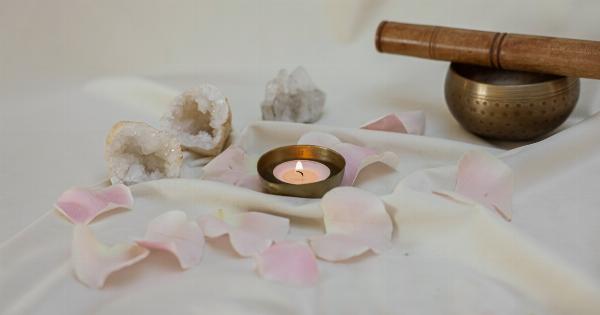Feeling stressed is an inevitable part of life. Whether it’s work pressure, relationship problems, or just the demands of everyday life, stress can take a toll on our physical and mental well-being.
Luckily, there are simple and effective ways to destress that don’t require much effort. Incorporating these practices into your routine can help you relax, find balance, and improve your overall quality of life. So, let’s explore the top 10 effortless ways to destress!.
H2: 1. Practice Deep Breathing Exercises
Deep breathing exercises are an amazing way to quickly calm your mind and relax your body. You can do it anytime, anywhere. Find a quiet spot, sit or lie down comfortably, and take slow, deep breaths in through your nose and out through your mouth.
Focus on the sensation of your breath entering and leaving your body. Deep breathing activates the body’s relaxation response and helps reduce stress hormones.
H2: 2. Engage in Physical Activity
Regular physical activity is not only beneficial for your physical health but also for your mental well-being. Engaging in exercise releases endorphins, the “feel-good” hormones that can boost your mood and reduce stress.
Whether it’s going for a walk, jogging, dancing, or practicing yoga, find an activity that you enjoy and make it a regular part of your routine.
H2: 3. Enjoy Nature
Spending time in nature has a calming and grounding effect on our minds and bodies. So, make it a point to step outside and immerse yourself in the beauty of nature.
Take a walk in a park, go hiking, or simply sit in your backyard and observe the birds and plants. Connecting with nature helps reduce stress and allows you to take a break from the hustle and bustle of daily life.
H2: 4. Listen to Soothing Music
Music has a powerful impact on our emotions and can help us unwind and destress. Create a playlist of calming, soothing tunes that resonate with you.
Whenever you feel overwhelmed, put on your headphones, close your eyes, and let the music transport you to a peaceful state of mind. Classical, instrumental, or nature sounds are great genres to choose from.
H2: 5. Practice Mindfulness or Meditation
Mindfulness and meditation are practices that involve focusing your attention on the present moment. They help cultivate a sense of calm, improve concentration, and reduce anxiety.
Find a quiet space, sit comfortably, and observe your breath or body sensations. If your mind wanders, gently guide it back to the present moment. Even a few minutes of daily practice can make a noticeable difference in reducing stress.
H2: 6. Engage in a Hobby or Creative Activity
Engaging in a hobby or creative activity can be a therapeutic way to destress.
Finding something you enjoy, whether it’s painting, gardening, knitting, or playing a musical instrument, allows you to focus your mind on the present moment and express yourself. It’s a great way to tap into your creativity and find joy outside of your daily responsibilities.
H2: 7. Take a Relaxing Bath or Shower
A warm bath or shower can do wonders for relaxation. Create a spa-like experience by adding some essential oils, bath salts, or candles. The warm water helps soothe your muscles and calms your mind.
Take this time to slow down, let go of your worries, and unwind. It’s a simple and effortless way to de-stress after a long day.
H2: 8. Disconnect from Technology
In today’s hyper-connected world, we are constantly bombarded with notifications and information overload. Taking a break from technology can significantly reduce stress levels.
Dedicate some time each day or on weekends to disconnect from your devices. Engage in activities that don’t involve screens, such as reading a book, going for a walk, or having a face-to-face conversation with a loved one.
H2: 9. Practice Gratitude
Cultivating an attitude of gratitude can shift your focus from stress to appreciation. Take a moment each day to reflect on three things you are grateful for. It could be as simple as a beautiful sunset, a delicious meal, or a loving relationship.
Expressing gratitude helps rewire your brain to look for the positive aspects of life and brings a sense of calmness and contentment.
H2: 10. Get Sufficient Sleep
Adequate sleep is crucial for your physical and mental well-being. When we are sleep-deprived, stress levels tend to increase. Establish a regular sleep routine and prioritize getting enough hours of quality sleep each night.
Create a calming bedtime routine, avoid caffeine and screens before bed, and create a peaceful sleep environment. You’ll wake up feeling refreshed and ready to take on the day.
H2: Conclusion
Destressing doesn’t have to be complicated or time-consuming. Incorporating these effortless practices into your daily routine can help you manage stress effectively and maintain a healthier and happier lifestyle.
Whether it’s taking deep breaths, enjoying nature, listening to music, or engaging in a hobby, find what works best for you and make self-care a priority. Remember, you deserve moments of relaxation and peace in your life!.































